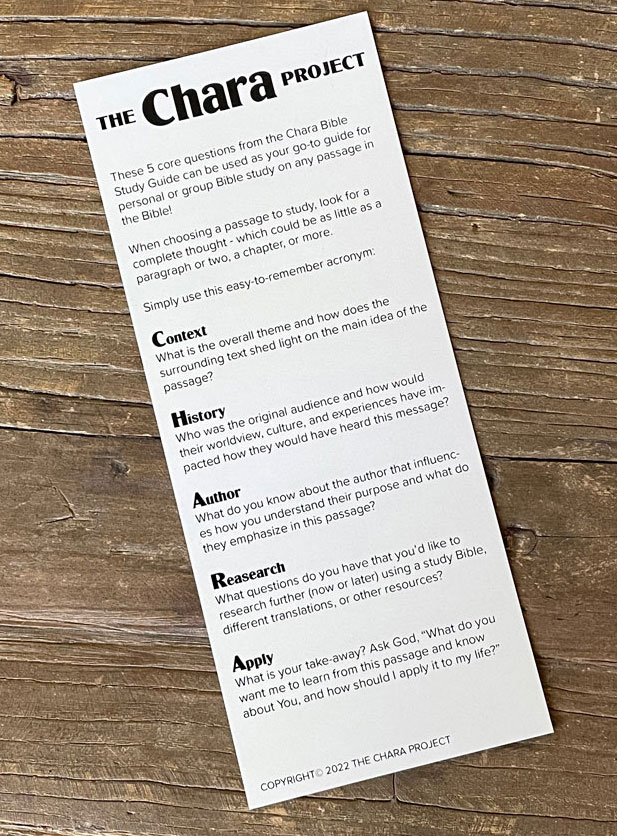Jeremiah 29:11
“For I know the plans I have for you,” declares the Lord, “plans to prosper you and not to harm you, plans to give you hope and a future.” Jeremiah 29:11 (NIV)
APPLY
YIELD: What personal, cultural, or religious bias and assumptions do you bring to the text?
Is God promising me that I will prosper and not experience harm?
CONTEXT
IMMEDIATE: What is the theme or main idea found in the surrounding paragraph(s) (Jeremiah 29:1-14)?
The theme is restoration and hope to the Jews exiled in a foreign land.
BOOK: Is the theme from immediate context repeated throughout the book? How does the theme fit within the overall purpose of the book?
Hope is not the only theme, as Jeremiah also emphasized judgment against Judah for their unfaithfulness to God’s covenant.
HISTORY
WHO/WHEN: Who was it written to? When did the events take place? What was going on in history at that time?
Jews who were deported from Jerusalem to Babylon (597 BC).
WHY: Why was this message given to those people at that time?
To give them hope that God would bring them back to their land after 70 years in exile and to instruct them on how to live life in Babylon.
AUTHOR
STYLE: What is communicated through the literary style the author used?
Prophecy & Letter. The prophet Jeremiah wrote a letter (29:1) revealing God’s heart for His people – God had a good plan for their future and had not abandoned them.
PATTERNS: What is highlighted through the use of repetition?
Plan, Plan, Plan (vs 11) – repetition emphasizes that God is in control–He had a plan and a purpose for His people even when it didn’t look like it.
RESEARCH
OBSERVATIONS & QUESTIONS: What observations or questions do you have?
What does “prosper” mean?
TRANSLATIONS/ORIGINAL LANGUAGE: Does another Bible translation add perspective or clarity on what the original language was trying to communicate? What does a word mean in the original language?
Translation variations of the word “prosper”: Well-being (CSB), Good (NLT), Welfare (ESV), Peace (KJV). In Hebrew (šālôm): Wellfare, Peace (blueletterbible.org).
APPLY
YIELD: What personal, cultural, or religious bias and assumptions do you bring to the text? What do you need to surrender, if anything, to be in harmony with the Bible?
I need to surrender my assumption that this is God’s promise to me, when it’s not. Because this verse is collectively for the Jews in exile, I may not personally prosper in my finances, family, or career and I may experience harm or suffering. To assume otherwise would not align with the rest of the Bible.
EXPRESS: What fears or concerns do you have about applying what you’ve learned?
I’m afraid that if I surrender to God’s plan and let go of control, I may lose the things I care about most and experience pain and suffering.
RESPOND/ASK: What was expected of the original audience and what principles make sense for us now (is it a cultural or timeless truth)? What do you learn about God – His character, attributes, or desires?
This is a cultural truth for the Jews in exile, but there is a timeless truth about God’s character – He is sovereign and we can trust and find hope in God’s faithfulness and purpose, even in difficult times.
PRAY: “Lord, what do you want me to learn and how should I apply this to my life?”
Lord, I praise you for your faithfulness. Help me to trust in your unchanging character and know your love when life hurts or doesn’t make sense.



